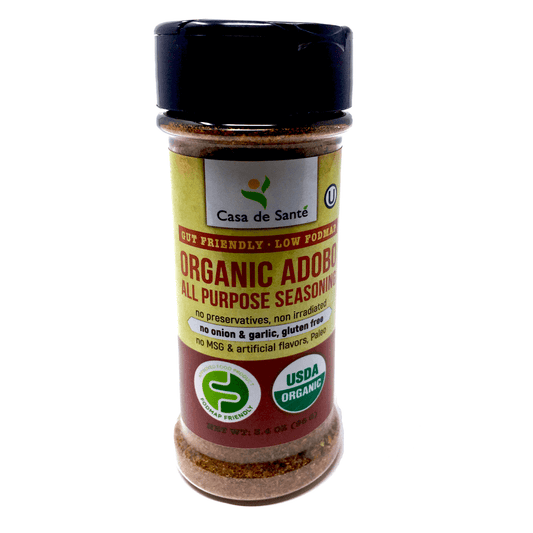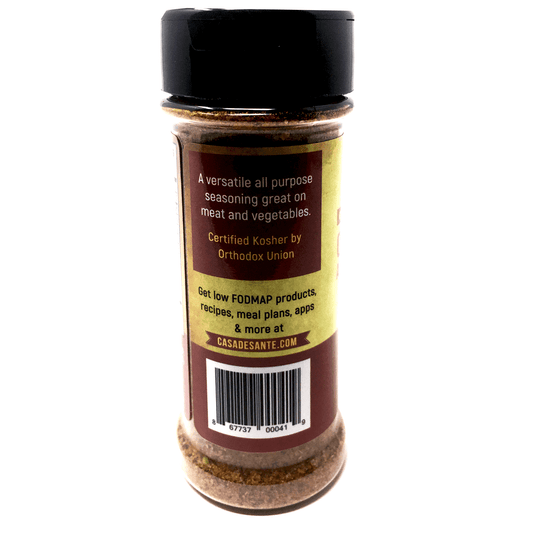Wheat Zoomer + Gut Commensals by Vibrant Wellness Vs Celiac Disease Testing
In the field of digestive health, there are various approaches to diagnosing and managing conditions such as celiac disease. One of the emerging methods is the use of Wheat Zoomer + Gut Commensals by Vibrant Wellness, which offers a comprehensive analysis of wheat sensitivity and gut health. In this article, we will explore the benefits and advantages of this approach compared to traditional celiac disease testing.
Understanding Celiac Disease: An Overview
Before delving into the specifics of Wheat Zoomer + Gut Commensals, it is essential to have a clear understanding of celiac disease. This autoimmune disorder affects the small intestine and is triggered by the consumption of gluten, a protein found in wheat, barley, and rye. Celiac disease can cause a range of symptoms, including abdominal pain, bloating, diarrhea, and fatigue.
Celiac disease is a complex condition that involves the immune system and the gastrointestinal tract. When individuals with celiac disease consume gluten, their immune system mistakenly identifies it as a threat and launches an attack on the lining of the small intestine. This immune response leads to chronic inflammation and damage to the delicate villi, finger-like projections that line the small intestine and are responsible for nutrient absorption.
Over time, the continuous damage to the intestinal lining can impair the absorption of essential nutrients, such as vitamins, minerals, and proteins. This malabsorption can result in various complications, including anemia, osteoporosis, infertility, and an increased risk of developing other autoimmune disorders.
What is Celiac Disease?
Celiac disease is a lifelong autoimmune disorder that affects approximately 1% of the population worldwide. It is a multi-systemic condition, meaning it can affect various organs and systems in the body. While the primary site of damage is the small intestine, celiac disease can also have extra-intestinal manifestations, affecting organs such as the skin, liver, joints, and nervous system.
The exact cause of celiac disease is not fully understood, but it is believed to involve a combination of genetic and environmental factors. Certain genes, specifically HLA-DQ2 and HLA-DQ8, are strongly associated with an increased risk of developing celiac disease. However, not everyone with these genes will develop the condition, indicating that additional triggers, such as gluten exposure, are necessary for the development of the disease.
Symptoms and Diagnosis of Celiac Disease
The symptoms of celiac disease can vary widely from person to person. Some individuals may experience classic digestive symptoms, such as abdominal pain, bloating, diarrhea, and weight loss. However, celiac disease can also present with non-specific symptoms, making diagnosis challenging. Fatigue, joint pain, anemia, depression, and skin rashes are some of the less obvious manifestations of the disease.
Diagnosing celiac disease typically involves a combination of blood tests, genetic testing, and an intestinal biopsy. Blood tests can detect specific antibodies that are elevated in individuals with celiac disease, such as anti-tissue transglutaminase (tTG) antibodies and anti-endomysial antibodies (EMA). Genetic testing can identify the presence of the HLA-DQ2 and HLA-DQ8 genes, which are strongly associated with celiac disease. An intestinal biopsy, where a small tissue sample is taken from the small intestine, is considered the gold standard for diagnosis, as it can reveal characteristic changes in the intestinal lining.
However, it is important to note that traditional testing methods may have limitations in terms of accuracy and comprehensiveness. False negatives can occur if an individual has already started a gluten-free diet or if the damage to the small intestine is patchy and not captured in the biopsy sample. In such cases, additional testing options, such as the Wheat Zoomer + Gut Commensals, may provide a more comprehensive assessment of gluten-related disorders and associated gut health.
The Role of Gut Commensals in Digestive Health
One critical aspect of digestive health that is gaining recognition is the role of gut commensals. Gut commensals are the trillions of microorganisms that inhabit our gastrointestinal tract. These microorganisms play a vital role in maintaining a healthy gut environment and supporting various bodily functions such as digestion and immune function.
Defining Gut Commensals
Gut commensals, also known as gut microbiota or gut flora, are a diverse community of bacteria, viruses, fungi, and other microbes that reside in the gut. These microorganisms work in harmony with our bodies, aiding in the breakdown of food, production of essential nutrients, and even influencing our mood and mental health.
Within the gut microbiota, there are different types of commensals, each with its own unique functions. For example, some commensals help break down complex carbohydrates, while others produce vitamins and short-chain fatty acids that nourish the cells lining the gut. These interactions between gut commensals and our bodies are complex and dynamic, constantly adapting to changes in our diet, environment, and overall health.
Furthermore, the gut microbiota is not static and can vary greatly between individuals. Factors such as genetics, diet, age, and exposure to antibiotics can influence the composition and diversity of gut commensals. A healthy gut microbiome is characterized by a diverse and balanced community of commensals, which promotes optimal digestive health.
How Gut Commensals Influence Digestive Health
Research has shown that imbalances in gut commensals or a lack of diversity can contribute to various digestive health issues, including celiac disease. Studies have found differences in the gut microbiota of individuals with celiac disease compared to those without the condition. Maintaining a healthy gut microbiome is therefore crucial for overall digestive health.
In addition to celiac disease, imbalances in gut commensals have also been linked to other digestive disorders such as inflammatory bowel disease (IBD), irritable bowel syndrome (IBS), and colorectal cancer. These imbalances can disrupt the delicate ecosystem of the gut, leading to inflammation, impaired nutrient absorption, and compromised immune function.
On the other hand, a healthy gut microbiome can contribute to better digestive health. Certain commensals have been found to produce enzymes that aid in the breakdown of complex carbohydrates, making them more easily digestible. They also help maintain the integrity of the gut lining, preventing harmful substances from entering the bloodstream and triggering inflammation.
Furthermore, gut commensals play a crucial role in training and modulating the immune system. They help educate immune cells in the gut, teaching them to differentiate between harmless substances and potential threats. This immune education is essential for preventing autoimmune reactions and allergic responses in the digestive system.
Overall, the intricate relationship between gut commensals and digestive health highlights the importance of nurturing and maintaining a healthy gut microbiome. Through a balanced diet, regular physical activity, and minimizing the unnecessary use of antibiotics, we can support the growth and diversity of gut commensals, promoting optimal digestive function and overall well-being.
Introduction to Wheat Zoomer and Gut Commensals by Vibrant Wellness
Wheat Zoomer + Gut Commensals by Vibrant Wellness is an advanced testing panel that combines the analysis of wheat sensitivity with an assessment of gut commensals. This innovative approach provides a comprehensive understanding of an individual's gut health, including their immune response to wheat and the state of their gut microbiota.
What is Wheat Zoomer?
Wheat Zoomer is a proprietary test that examines an individual's immune response to different components of wheat. This analysis goes beyond traditional celiac disease testing by evaluating various antibodies associated with wheat sensitivity, including gluten, gliadin, and wheat germ agglutinin. By assessing these markers, Wheat Zoomer can identify not only celiac disease but also non-celiac gluten sensitivity and other immune reactions to wheat.
The Importance of Gut Commensals in Vibrant Wellness' Approach
What sets Wheat Zoomer + Gut Commensals apart from other testing methods is its incorporation of an evaluation of gut commensals. Alongside the Wheat Zoomer analysis, this comprehensive assessment provides insights into the overall health and diversity of an individual's gut microbiota. By considering both wheat sensitivity and gut commensals, Vibrant Wellness aims to address the root causes of digestive issues and offer personalized solutions.
Comparing Wheat Zoomer + Gut Commensals and Traditional Celiac Disease Testing
Methodology and Accuracy
While traditional celiac disease testing often focuses solely on the detection of specific antibodies related to gluten, Wheat Zoomer + Gut Commensals takes a broader approach. By assessing multiple markers associated with wheat sensitivity and analyzing gut commensals, this testing panel offers a more comprehensive picture of an individual's digestive health. The inclusion of gut commensals provides valuable information that can help identify underlying issues beyond celiac disease.
Moreover, the accuracy of Wheat Zoomer + Gut Commensals has been validated through rigorous scientific studies. These studies have demonstrated the reliability and specificity of the testing panel in detecting wheat sensitivity and assessing the diverse community of gut commensals. Such scientific backing provides confidence in the accuracy of the results obtained through this approach.
Pros and Cons of Each Approach
Traditional celiac disease testing has its advantages, particularly in terms of affordability and accessibility. However, it may not capture the full spectrum of gluten-related disorders or provide insights into gut health. It focuses primarily on the detection of specific antibodies associated with celiac disease, limiting its ability to identify other immune responses to wheat or assess gut commensals.
In contrast, Wheat Zoomer + Gut Commensals offers a more comprehensive analysis that goes beyond celiac disease. It provides insights into non-celiac gluten sensitivity, immune reactions to other components of wheat, and the state of gut commensals. While the testing panel may involve a higher cost, the wealth of information obtained can guide personalized interventions and support long-term gut health.
Case Studies and Real-Life Applications
Success Stories Using Wheat Zoomer + Gut Commensals
Real-life applications of Wheat Zoomer + Gut Commensals have yielded success stories and positive patient experiences. Individuals who struggled for years with unexplained digestive issues have found answers and relief through this comprehensive analysis. By identifying specific wheat sensitivities and addressing gut imbalances, these individuals have been able to tailor their diets and lifestyles to support optimal digestive health.
Traditional Celiac Disease Testing: Patient Experiences
Patient experiences with traditional celiac disease testing have showcased both its benefits and limitations. For some individuals, this method has provided a definitive diagnosis and clear guidance on managing their condition. However, others have found themselves with inconclusive results or a failure to capture their specific gluten-related issues beyond celiac disease. These experiences highlight the potential advantages of a more comprehensive approach like Wheat Zoomer + Gut Commensals.
In conclusion, Wheat Zoomer + Gut Commensals by Vibrant Wellness offers a unique and comprehensive approach to diagnosing and managing gluten-related disorders and assessing gut health. By considering both wheat sensitivity and gut commensals, this testing panel provides a more holistic understanding of an individual's digestive health, allowing for tailored interventions and improved gut wellness. As our knowledge of gut health continues to expand, embracing innovative approaches like Wheat Zoomer + Gut Commensals can pave the way for a more personalized and effective management of digestive issues.
























